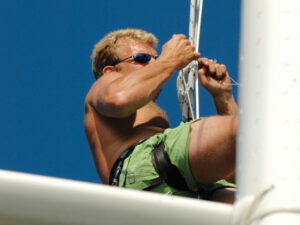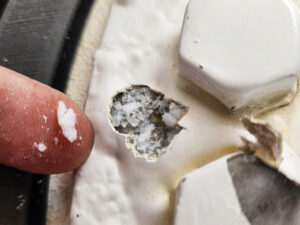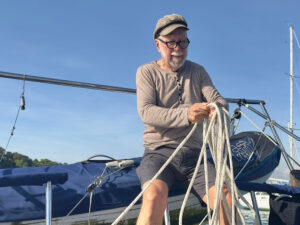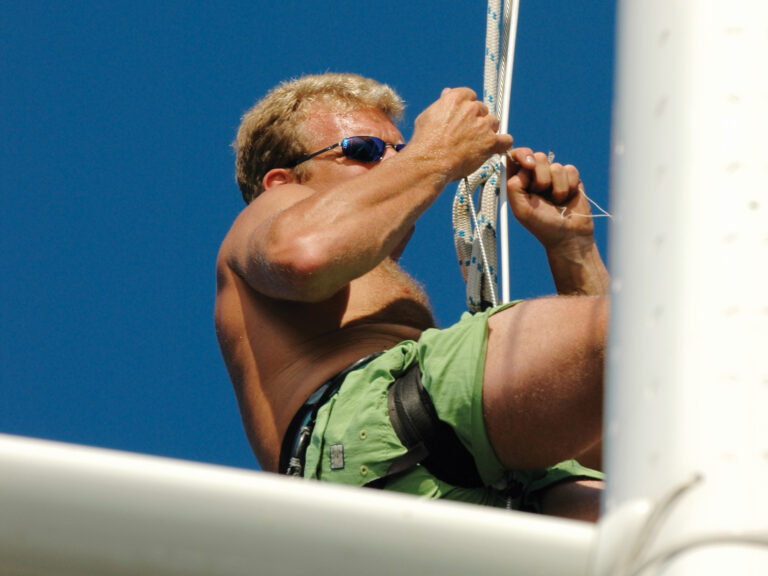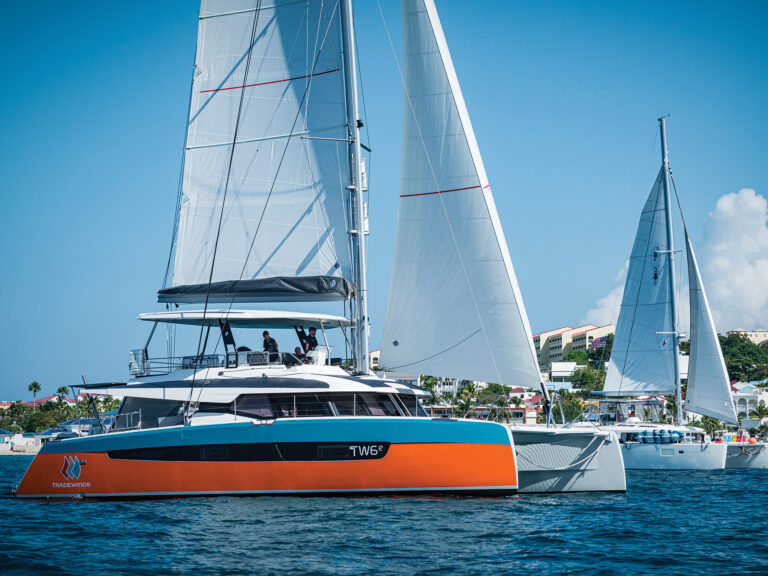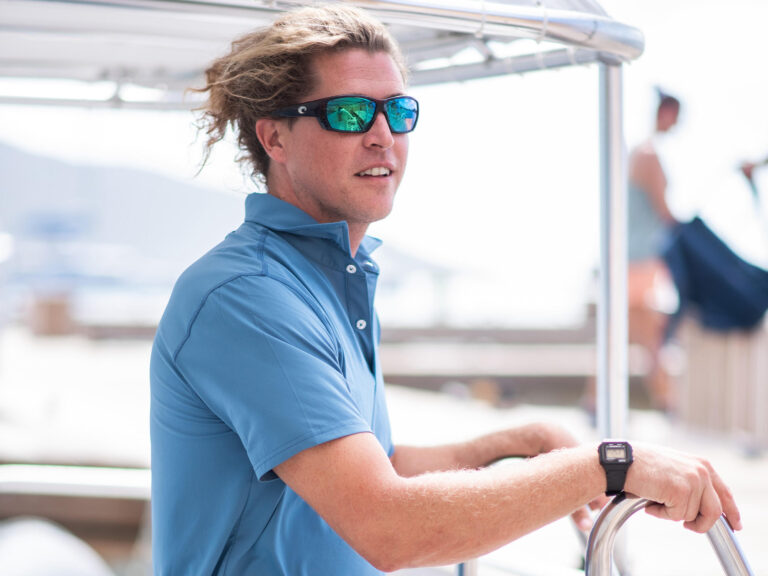Thirty-four years old, built like a linebacker, a consummate professional sailor at the peak of his game: Here in Newport, Rhode Island, Jamie Boeckel was known as a fun-loving guy as solid as a summer day is long. He was the paid skipper of an extremely active 66-foot ocean-racing sloop called Blue Yankee whose 16-man blue-chip crew was always composed of America’s Cup veterans like himself and other equally formidable rock stars. There was no higher level in the sport of yacht racing than the one on which Jamie competed.
His pure love of sailing, however, was better reflected by his regular attendance crewing aboard J/24s and Shields during weeknight racing on Narragansett Bay, where the only remuneration might be a few cold brews and a gorgeous sunset. In that venue, the one real reward for Jamie was mixing it up on the water for the sheer joy of it with a few boatloads of like-minded sailors, all of whom shared his enthusiasm if not necessarily his talent.
Highly skilled, physically imposing, and surrounded by sailors of the highest caliber, on May 25 Jamie looked like the last guy on the water who wouldve been exposed to true peril. But that was the day the promise of endless sunsets and summer sails came to an end, the day Jamie was lost at sea.
The details, in these parts, have been well documented. At dusk, just a few hours after crossing the starting line off Stamford, Connecticut, Blue Yankee was one of 86 boats reaching down Long Island Sound in the Storm Trysail Club’s annual race around Block Island. A 25-knot northwesterly squall overtook the fleet. Jamie was on the bow pulpit helping execute a spinnaker peel. The boat broached. The outboard end of the spinnaker pole slammed into the headstay and broke in two just above him. Jamie was pitched over the side.
The boats other paid hand, Brock Callen, shed his jacket and boots and plunged in after him. Neither he nor Jamie, who was unconscious when Callen reached him, wore life jackets. Ultimately, Callens heroic effort failed when the moment came to either let Jamie go or succumb himself. It was another couple of weeks, well after the many memorial services in his honor, before Jamies body was recovered.
Jamies final actions, appropriately, were never questioned by his many friends and peers. He was a trained athlete in the heat of competition pursuing his favorite activity in the world, one hed excelled at for many years. Accidents happen, they reasoned. Even to Jamie.
In a broader context, however, questions do remain. Did the busted spinnaker pole strike Jamie in the head? Even the sailors aboard Blue Yankee that day can’t say for sure. Would a PFD have saved his life? If he was mortally wounded by the broken pole or, in a different scenario, run over by the boat after landing in the drink unscathed–a distinct possibility, according to some of those on board–the answer is no.
Why, then, wasnt he tethered to the boat by a harness? Only Jamie knows the answer to that one. But lets face it–who hasnt run forward on a familiar boat to hurriedly perform an oft-repeated task in dicey conditions without giving a harness a second thought? I know I have. Time and again.
So maybe it comes down to something as simple as this: My number hasnt come up yet. Jamies has. But that rationale suggests that we sailors have little control over our ultimate fate, and thats something Im not quite ready to concede. So Ive ordered an inflatable PFD. Ive promised myself to start clipping in more regularly. Sure, stuff happens out there. But dont we owe it to ourselves to do everything in our power to lengthen our odds against tragedy?
For on May 25, this sobering point was driven home hard: If it could happen to Jamie Boeckel, it can surely happen to you or me.
Herb McCormick

